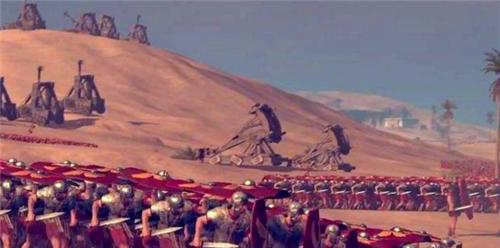Whether in the past or now, war is a topic in the history of human civilization that cannot be shaken off, especially in the era of cold weapons, the advanced prosperity of a civilization and whether the combat effectiveness of the army is strong or not, there is not much direct connection.
However, a set of complete measures of reward and punishment can make soldiers exude extremely strong combat power, just like the Qin State in the Spring and Autumn Warring States period, the military merit system with clear rewards and punishments makes the Qin army's combat ability rise rapidly above the Six Kingdoms, while in the same period of Rome, it is also invincible in Europe, and the Roman Empire at its peak even turned the Mediterranean Into its own inner lake.

The Romans' strong fighting power may also be inextricably linked to the famous "ElevenThought And Kills".
What is the "Eleventh Killing Law"? This was definitely a discoloration of the soldiers in the Roman army at that time, how terrifying was it? The content is very simple and crude: the punished troops will be drawn in teams of 10 people, and those who win the lottery will be sentenced to capital punishment, usually by the executioners with stones or killed by random rolls.
It is worth mentioning that this kind of punishment can be said to be equal, from the commander of the army to the ordinary grass-roots soldiers, once punished, no one can escape the fate of the lottery.
As for those who survived, after suffering such a great visual shock, they would still not have a good life, they would be placed outside the camp for venom, no longer protected by the rest of the Roman troops, and the rations would be changed from wheat to barley or bran for livestock to be used as an insult.
However, in history, there have only been 4 times in the literature that recorded the implementation of the "Eleventh Killing Law", usually in a situation of extremely critical situation in a backwater war. The earliest record occurred between the Romans and the northern barbarian Wolschi, in 471 BC, when the Roman Republic had only recently been established.
The largest one occurred in 71 BC, when the fierce Spartacus revolt occurred in Rome, and the Roman army suffered one defeat after another, and the Roman Republic was forced to use the general Crassus as the commander.
At that time, Crassus was not liked by most of the Roman nobles for his eccentric temperament and arbitrary behavior, but in war, this man often had a variety of strange strategies and was able to successfully defeat the enemy army.
As a result, when Crassus became the leader, he quickly punished a Roman legion of 40,000 people with the "law of eleven slaughters", because this team did not resist the attack of the rebel army with more enemies and fewer enemies. In the end, 4,000 soldiers and officers were killed by Crassus for winning the lottery. It caused a sensation in the republic, where most of the Roman citizens and noble elders of the Senate considered Crassus too vicious.
But Crassus did achieve his goal, and the Roman soldiers feared Crassus more than they feared Spartacus, so in the ensuing battle, they became more and more courageous, and finally defeated the rebels in one fell swoop and won the final victory.
In addition, another senator, Mark Antony, also issued a law of killing during his expedition to Parthia.
From today's point of view, this disciplinary system is obviously too harsh, and cruel, a little careless, is likely to lead to mutinies, rebellions and other serious consequences, so it gradually withdrew from the history of Rome, only in today's film and television dramas, it began to be reflected.